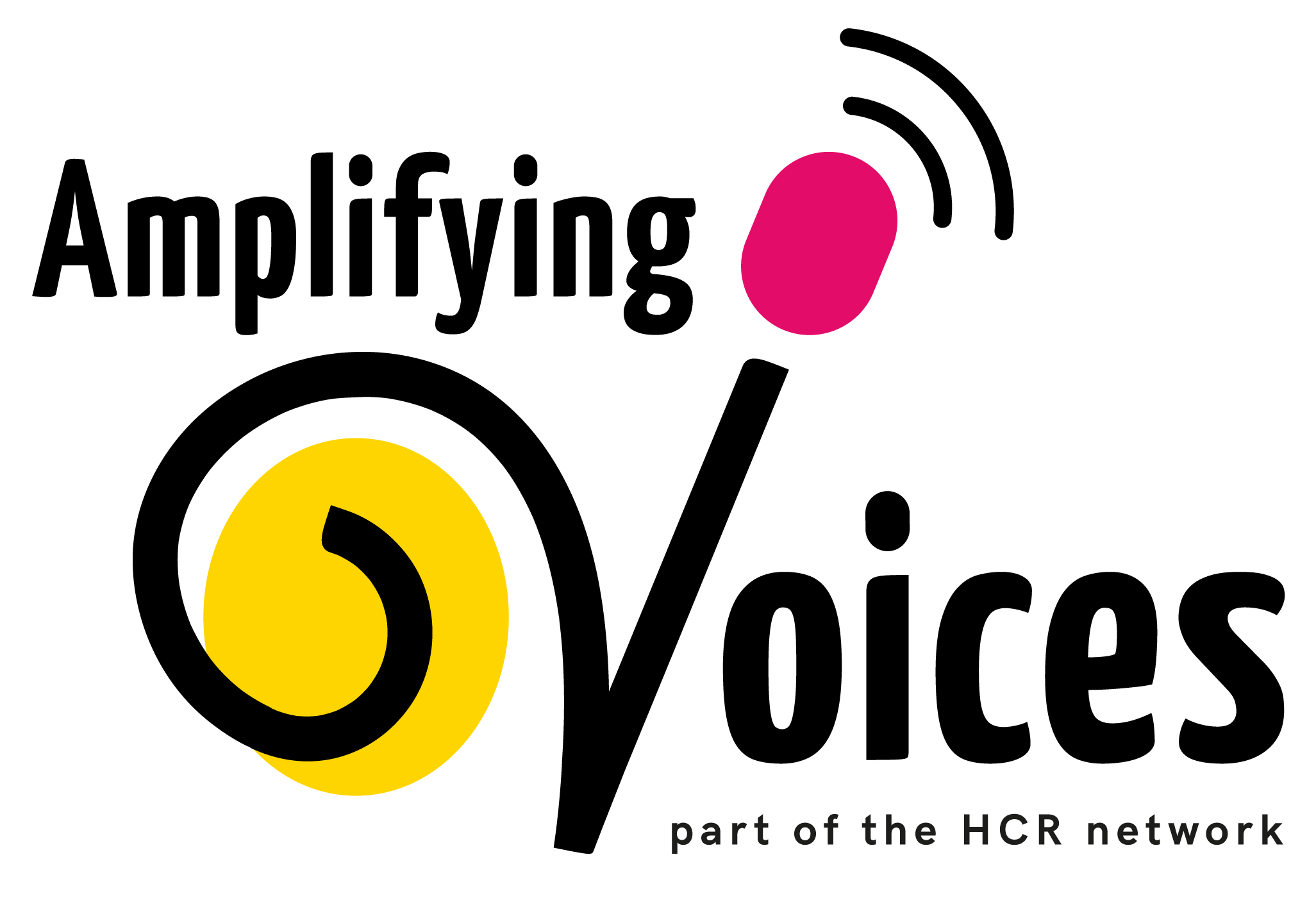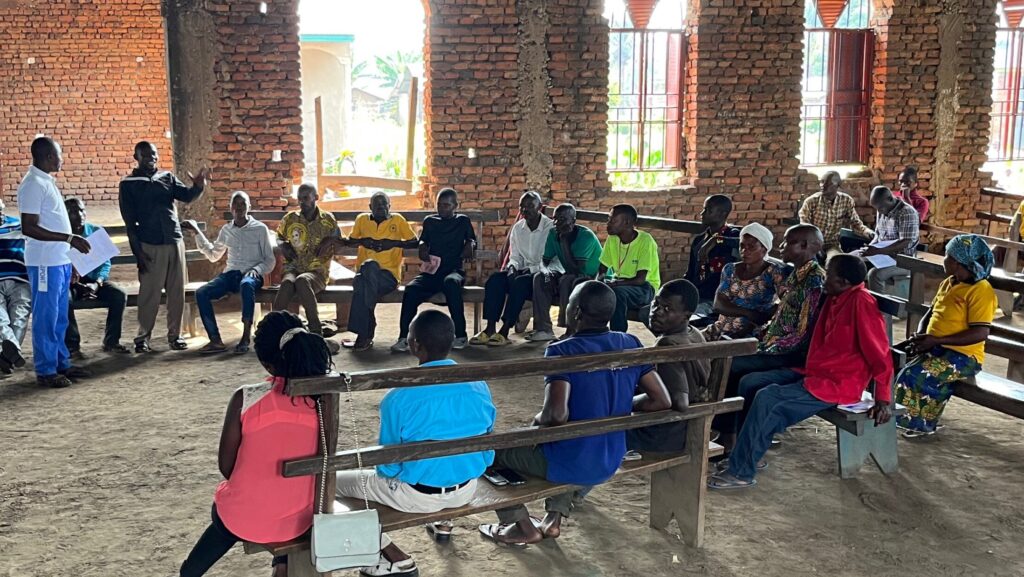
“The Radio gives us security”
“If the radio station was not there, we would feel insecure again!”
These words from a listener to Umoja FM were one of the many powerful testimonies we heard, as Johnny and I visited different communities in the chiefdom of Watalinga in the DRC’s conflict-affected region of North Kivu. Story after story confirmed how this humble radio station has been a life-line to local communities, seeing them through war, a refugee crisis, an Ebola outbreak and the pandemic. One listener told us: “Before Covid arrived in the DRC, Umoja had prepared us, so we knew how to protect ourselves.”
It’s been nearly 5 years since anyone from our team has been able to visit the radio station that Amplifying Voices helped set up in 2016, as part of an initiative to promote peace and development in this region. During that time all of our contact with the team has been through WhatsApp calls and text messages. And despite many setbacks, including equipment failure, the team managed to stay on the air, continuing the community conversations. Even the war couldn’t stop them. As station manager Baraka told us, “When thousands were fleeing to Uganda because the rebels attacked the town, our team decided it was important to stay. The army felt we were providing such an important service to the community that they even sent soldiers to defend our station.”
Accompaniment
An important part of Amplifying Voices’ work is to ‘walk alongside’ our partners as they support their communities, which are often facing challenging circumstances. We call this “accompaniment” and while a lot of it takes place on-line, nothing beats face-to-face visits. Our recent visit to the DRC was a wonderful opportunity to build on our relationships with the local team as well as support them with training, technical advice and equipment. As the Democratic Republic of Congo gears up for elections in December, an important part of our training workshop this visit was devoted to the role of Umoja FM in the run up to, during and after the election and especially how the station can contribute to a peaceful, democratic process. While training on conventional subjects like reporting, we placed an emphasis on ‘solutions journalism‘, which takes a different approach to conventional news reporting by focusing on how communities respond to and resolve social issues and problems themselves.
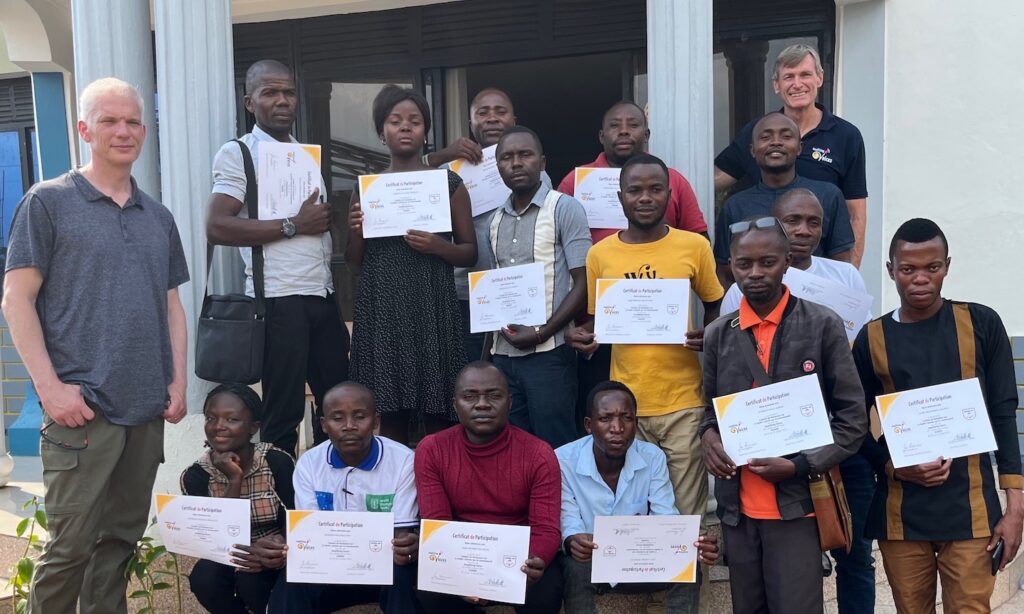
After completing a community-centred media workshop, the Umoja FM team proudly display their certificates of participation
Extending the Reach
During our visit we upgraded the radio transmitter. To confirm this was having an effect, we took the opportunity to visit some remote communities who feel disconnected from the wider community as they have little access to reliable information and no mobile phone connectivity. When we arrived in one village, Kichanga, we were ushered in to join a community meeting led by the local chief, discussing their need for a school and a medical clinic. They were delighted that they can now hear Umoja FM in the village instead of taking their radios out to the high ground. Umoja presenter Sammy interviewed the chief, telling him that his voice would be on the radio that evening to amplify the voice of his village. We are still working with Umoja team to extend the radio signal to other villages who can’t yet receive it.
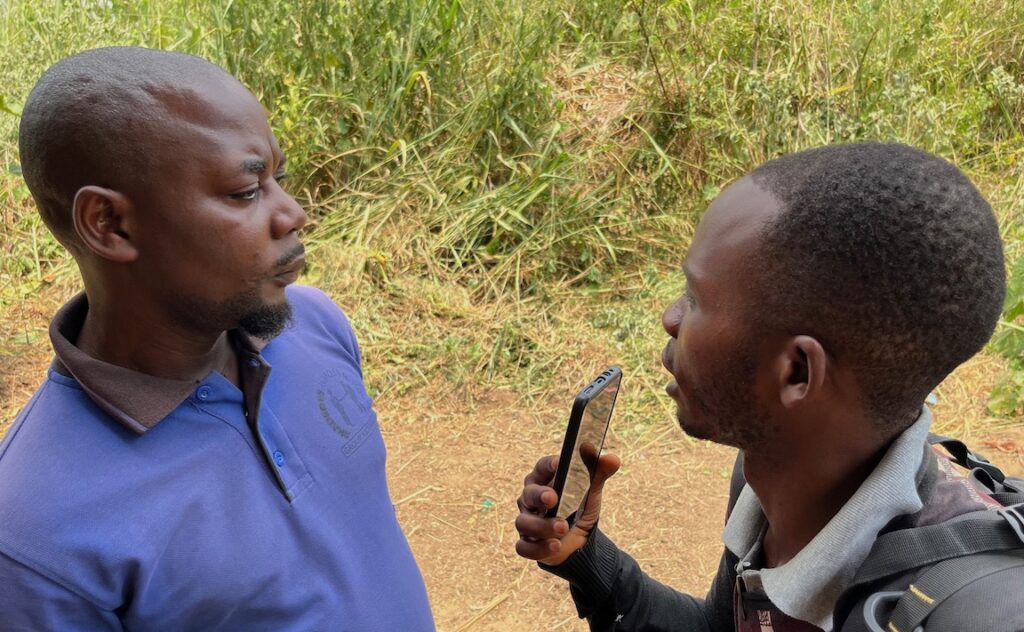
Umoja FM presenter, Sammy interviews local chief for the evening programme
New Studio Building
Besides the importance of extending the reach of the station to communities that are underserved by radio, the Umoja FM studio is itself facing major challenges. This old wattle and daub building, has been in existence for more than a decade, but it has finally succumbed to damage from termites, weather and war. To that end, Amplifying Voices in partnership with FEBC Australia, has committed to helping our local partner ESADER to build a new building. Albert, the President of ESADER says: “The construction of a new studio building to replace the existing one, will enable Umoja FM to operate sustainably into the future and is part of an ongoing process to help the radio station to increase its reach to communities that have little or no access to radio or other media.”
Construction of the new building is planned to begin in October.
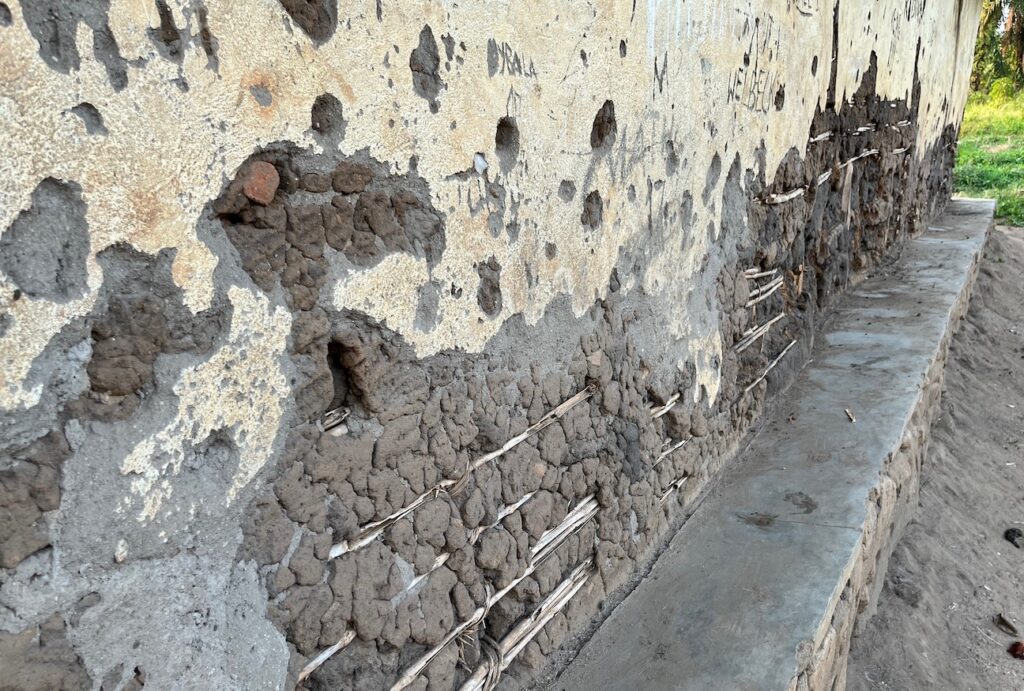
The current Umoja FM studio affected by years of termite, weather and war damage
